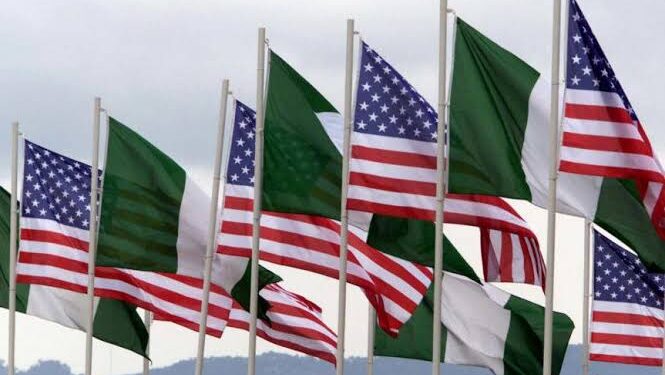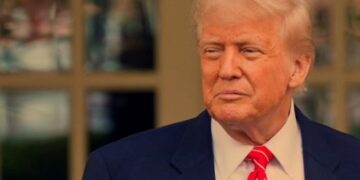In a significant step to enhance economic relations, the federal government of Nigeria and the United States have signed a Memorandum of Understanding (MoU) focusing on commercial and investment partnerships. The MoU aims to deepen bilateral ties by improving the business environment and facilitating private sector-led trade and investment projects.
Signing Ceremony
The agreement was signed during the 2024 AGOA Forum in Washington, DC. Dr. Doris Uzoka-Anite, Nigeria’s Minister of Industry, Trade and Investment, and U.S. Secretary of Commerce, Gina Raimondo, represented their respective countries in the signing. The Ministry of Industry, Trade and Investment stated the MoU on Sunday.

Focus Areas
The MoU covers key economic sectors, including:
- – Infrastructure
- – Agriculture
- – Sports
- – Digital and Creative Economy
It also addresses cross-cutting areas such as investment promotion and regulatory reforms. The agreement sets up a framework for regular consultations at multiple levels: business-to-government, government-to-government, and business-to-business.
New Avenues for Cooperation
In addition to the MoU, both nations have agreed to explore new avenues of commercial cooperation, particularly in the digital economy. This comprehensive approach aims to bolster bilateral economic relations.
Statements from Leaders
Dr. Doris Uzoka-Anite commented, “This MOU marks a pivotal moment in Nigeria-U.S. economic relations. By focusing on critical sectors like infrastructure, agriculture, and the creative and digital economy, we are laying the groundwork for sustainable economic growth and job creation. This partnership underscores our commitment to nurturing an enabling environment for investment and trade, which is crucial for President Bola Ahmed Tinubu’s economic development agenda. We are particularly excited about the opportunities this presents for our fast-growing tech sector and the potential for knowledge transfer and innovation.”
U.S. Secretary of Commerce Gina Raimondo highlighted the partnership’s importance, stating, “At the U.S. Department of Commerce, we are committed to working hand-in-hand with our Nigerian Government colleagues to foster deeper commercial cooperation that helps promote inclusive economic growth, fosters innovation, and creates jobs in both our countries.”
Operational Details
The MoU includes structures for cooperation, such as ministerial co-chairs and technical co-chairs, and involves various levels of consultation with both government and private sector stakeholders. The agreement is set to remain in effect for five years, with provisions for periodic review and revision.
Implications and Considerations
While the MoU represents a significant milestone in Nigeria-U.S. relations, it is crucial to consider the potential benefits and interests of both parties. The U.S., as a dominant state, will likely pursue partnerships that align with its strategic interests. Therefore, careful evaluation of the partnership’s implications is necessary to ensure that Nigeria’s interests are protected and that the nation does not find itself disadvantaged in foreign relations.

















